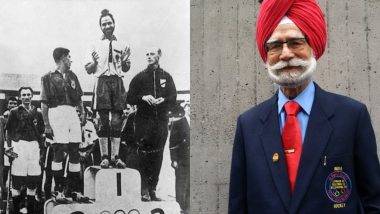A three-time Olympic gold medallist and captain of India’s last invincible team at the Olympics, Balbir Singh Sr breathed his last at the Fortis hospital in Mohali on May 25, 2020 (Monday). Singh, who turned 95 last December, was undergoing treatment since at the facility since May 8 after being admitted with bronchial pneumonia and, as per reports, was in a semi-comatose state since May 18. He had also developed a blood clot in his brain. Balbir Singh Dosanjh sadly passed away at 06:30 am on Monday. Balbir Singh Sr, Hockey Legend and Three-Time Olympic Gold Medallist, Passes Away at the Age of 95.
Heralded as the modern-day Dhyanchand, Singh was the first athlete to be honoured with the Padma Shri in 1957, a year after captaining India to last of their double hat-trick gold medals at the Olympics (1928-1956). Singh was part of the final three (1948, 1952 and 1956) and those games alone could explain how Singh burst from a tall forward with accurate finishes and an eagle’s eye for goal to a legendary figure in Indian sporting folklore and an icon in the hockey universe.
Balbir was still young, then 23, when he made his Olympic debut against Argentina. He was an excellent player already by then but by nowhere India’s first-choice for a central forward. Singh got his opportunity after Reggie Rodrigues fell sick before a group game against Argentina and made that count with a hat-trick in the 9-1 rout of the South Americans. His next opportunity came in the final against Great Britain, who were playing on their own soil. But India ensured that didn’t guarantee a winning medal. Singh scored two in the first half and India beat Britain 4-0 to win the gold.
That was the first Olympic hockey gold medal for an independent nation bouncing back from the ravages of an independent battle and with the agony of withstanding a partition.
Born in Haripur Khalsa in greater Punjab – which then comprised a large part of Pakistan, Jammu Kashmir and other Indian states – under British India, Singh grew up playing alongside many legends of past great Indian hockey teams, most of whom shifted to Pakistan post-partition. Legend goes that Singh was gifted a hockey stick by his father at a young age and he played hockey in school. But the moment of hockey baptism for Singh came when he saw a newsreel of India’s 1936 Olympics Hockey triumph. Dhyanchand became his idol and hockey his admiration.
In 1942, Singh was selected to represent the Punjab University and captained them to three All India Inter-University titles between 1943 and 1945 and also was part of the national championship-winning Punjab team in 1947. Ali Iqtidar Shah Dara captained Singh in that Punjab side before moving to Pakistan after partition as did several others from the state team.
The Olympics came calling a year later and Singh was part of the first independent Indian side at London Olympics 1948. He scored eight goals, including two in the final, despite playing only two matches as India retained the gold and returned with an independent nation’s first international sporting honour. His fame and game only ascended from there.
Four years later, Singh was part of the Olympic-bound Hockey squad again only that this time he was no junior member but a senior and to be exact the deputy to captain K.D. Singh. With the fame and popularity also came added incentive of assuming the role of India’s flag-bearer at the opening ceremony in 1952 Helsinki Olympic Games.
Balbir Sr scored nine of the 13 goals India netted at the 1952 Games, including setting a five-goal record against the Netherlands in the final. The record – five individual goals in a men’s Olympic final stands to this day. India mauled the Dutch 6-1 to win the final after Singh added to his hat-trick of goals against Britain in the semi-final.
He was the captain four years later at Melbourne and assumed his role with another five-goal against Afghanistan in the opening match leading India to 14-0. But Singh suffered a hand fracture and was ruled out until the semis. He returned and guided India to the final before beating arch-rivals Pakistan to the gold medal. His record – 22 goals in three Olympics events and the rare honour of being the flag-bearer in successive Games –earned Balbir Sr the first-ever Padma Shri awarded to a sports personality.
Singh played for five more years and added a couple of Asian Games silver medals to his accolades before calling it a day. Soon management came calling and Singh answered. He served the national hockey team as a selector, coach, administrator and manager and was also an important member of the Punjab state hockey federation.
He was the coach in the inaugural World Cup edition in 1971 when India returned with a Bronze and when India won its first and only Hockey World Cup title in 1975 beating Pakistan 2-1 to the honours. Singh was conferred with the Major Dhyan Chand Lifetime Achievement Award later in 2015 - a moment, Balbir Singh said, made him 'the proudest' to be bestowed with an award dedicated to his idol Dhyanchand.
(The above story first appeared on LatestLY on May 25, 2020 10:18 AM IST. For more news and updates on politics, world, sports, entertainment and lifestyle, log on to our website latestly.com).


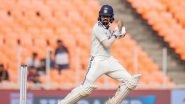
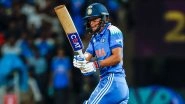
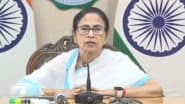
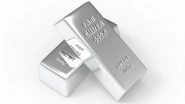
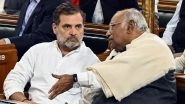

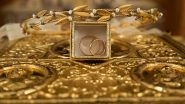


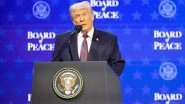

 Quickly
Quickly